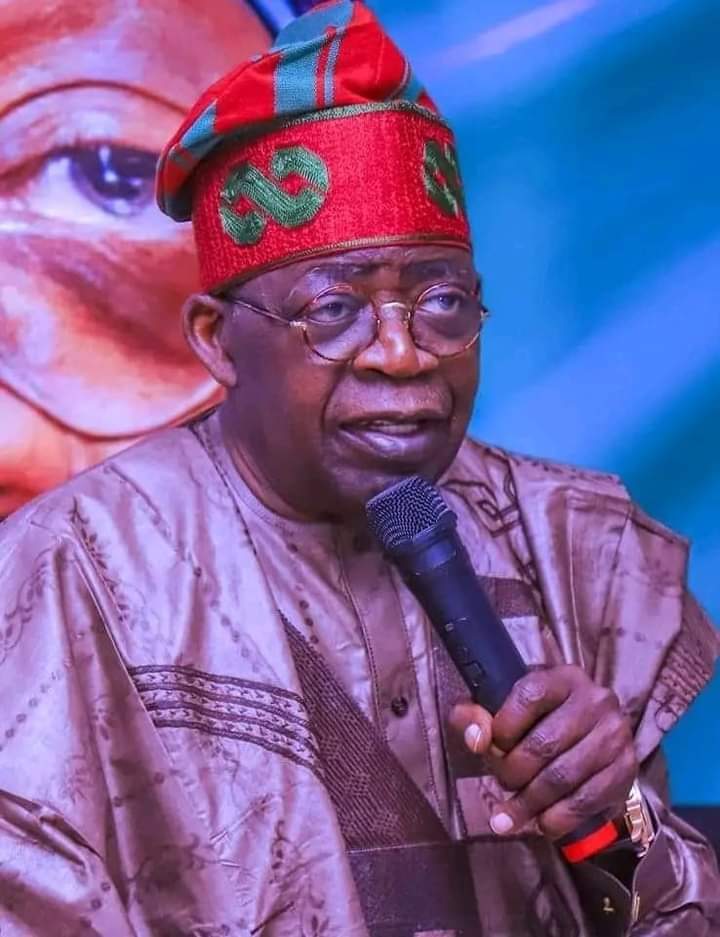Nigeria’s Rising Global Profile Under Tinubu

By Ademola Oshodi
In a rapidly globalizing world, a nation’s international standing is pivotal in shaping its development trajectory and the well-being of its citizens. A formidable global profile can attract foreign investments, foster bilateral partnerships, and inspire national pride. This has become increasingly important for Nigeria, Africa’s most populous nation. Over the years, the country’s global image has been shaped by its rich cultural heritage, abundant resources, and regional leadership. Under President Bola Tinubu’s administration, Nigeria’s global profile appears to be transforming.
His tenure has been marked by bold domestic reforms and proactive international diplomacy, earning the nation renewed attention globally. His approach underscores a commitment to repositioning Nigeria as a key global player - fostering stronger relationships with world leaders and advocating for policies that promote economic stability - setting the tone for a new chapter in Nigeria’s global narrative.
Under President Tinubu, Nigeria has strengthened bilateral relations with world economic and political powers including Germany, China, France, India, Britain, The Netherlands, Saudi Arabia; United Arab Emirates (UAE), to mention a few. The country has attracted billions of dollars in aid and investments. Recently, two landmark agreements were signed between Nigeria and France, focusing on infrastructure development, healthcare, transportation, agriculture, renewable energy, and human capital development with a value exceeding 300 million euros. These initiatives aim to promote sustainable growth, supporting Nigeria’s “Renewed Hope Agenda”. Nigerian banks like Zenith Bank launched operations in Paris and United Bank for Africa is set to follow, strengthening cross-border financial integration and economic diplomacy. The French Development Agency also committed to supporting infrastructure, education (especially STEM) and agriculture with sustainable funding models which reinforces Nigeria’s reform agenda. Nigeria’s rising global profile shows prospects for improved trade relations, global policy impact, tourism and cultural exchange, soft power, and enhanced territorial integrity.
Domestically, President Tinubu’s petroleum subsidy removal, although criticized by many, is a bold step toward fiscal and environmental sustainability. The unification of Nigeria’s multiple exchange rates has been lauded by local and foreign investors and global financial institutions like the World Bank and IMF. This addressed foreign investors’ difficulty in repatriating their funds from Nigeria. The decision of the Tinubu administration to clear all backlogs of over seven billion dollars has restored confidence in the Nigerian economy, exemplified by the restoration of flight operations and resumption of visa issuance to Nigerians by the UAE. These changes aim to make Nigeria more competitive and attractive for investment, as an active participant in the global economy.
Nigeria’s participation at the 2024 G20 and BRICS summits reflects her aspiration for active engagement in shaping global economic and political agendas. Her presence at these fora increased her visibility to international investors. Nigeria has also used these platforms to champion issues critical to Africa like debt restructuring, climate finance, and equitable trade policies, leveraging her position as one of Africa’s largest economies. Nigeria’s invitation to join the BRICS, and the country’s positioning to join the G20, suggests a new aspiration that will further elevate her global profile.
Nigeria’s quest for a permanent seat in the UN Security Council (SC) has received a strategic boost. In a recent telephone call with President Tinubu, President Biden expressed America’s commitment to securing two permanent seats for Africa in the UNSC. He specifically highlighted Nigeria’s leadership in Africa, and global relevance as reasons it should be considered for one of these seats. Just a few days ago, Nigeria’s Dr. Ngozi Okonjo-Iweala was re-elected, unopposed, as Director-General World Trade Organisation.
As ECOWAS Chairman, President Tinubu has led the regional bloc’s response to military coups in Niger and other Sahel countries, promoting democracy and regional stability. His ‘stick and carrot’ approach in tackling these crises highlights John F. Kennedy’s statement “let us never negotiate out of fear. But let us never fear to negotiate”. The US and Europe have variously consulted Nigeria on the Sahel crisis and the crises in Niger and Mali. These consultations reflect recognition of Nigeria’s influential position in West African affairs and its potential to lead initiatives that align with broader international interests in combating extremism and stabilizing the region. Regional instability portends a threat to the global community.
President Tinubu’s democratic emergence set the stage for Nigeria’s continuous institution-building, boosting international observers’ confidence. While the global profile of Nigeria continues to soar, improvements in the country’s domestic realities are important for sustainability. Cushioning the effects of his economic reforms on Nigerians is critical. Measures being taken to mitigate the economic hardships on the most vulnerable need to be constantly evaluated and reviewed for greater impact. Recent successes in combating insecurity must also be sustained. Preventive and punitive actions must be taken to address the global perception of Nigeria as being corrupt. If these issues are managed effectively, Nigeria could solidify its position as a key player globally.
Mr Oshodi is a Senior Special Assistant to President Tinubu on Foreign Affairs

